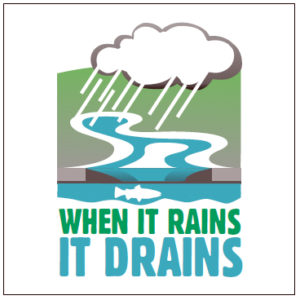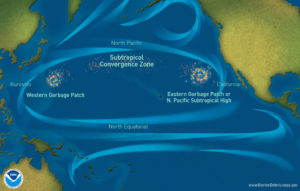Our oceans are in more trouble than ever before. Climate change, ocean acidification, marine garbage and unsustainable practices have extreme impacts on ocean health. While scuba divers represent some of the strongest ocean advocates, it’s not always easy to know how to make a difference. In honor of World Oceans Day on June 8, we’ve compiled a list of eight ways you can help the ocean, along with associated tips to establish yourself as a true ambassador for the sea.
Avoid eating overfished species
Two-thirds of all ocean species are overfished. Many fishing and farming methods result in large-scale habitat damage and gigantic amounts of bycatch, where other species are unintentionally caught and thrown back dead. Use this PDF pocket guide, searchable site, Android app or iOS app to make sustainable seafood choices, and leave these fish off your plate for good.
Support organizations that protect the ocean
Many organizations are fighting to protect the ocean and marine wildlife, but they need help. Support a well-reviewed charity financially or by volunteering. Seacology, which protects the unique habitats and cultures of islands worldwide by making island conservation effective for locals, and Coral Reef Alliance, which restores and protects coral reefs in partnership with the communities living nearest the reefs, are both great choices.
 Protect all sources of water
Protect all sources of water
All the water on our planet is connected. Even if you don’t live near a coastline, water that goes down your drain or runs off from your yard can eventually end up in the ocean. Conserve water and keep chemicals and trash out of our waterways.
- Choose non-toxic cleaning products or eco-friendly ingredients such as vinegar and baking soda.
- Buy organic fruits and vegetables when possible.
- Watch what you wash down the drain. Cooking grease and food waste can cause blockages, creating sewage overflows into the ocean.
- Use only organic fertilizer and apply it sparingly. The excess can end up in our freshwater supply as well as in the ocean. This can cause harmful algae blooms and “dead zones,” areas with low levels of oxygen.
- Don’t hand wash your car. This uses 60 percent more water than a commercial car wash and allows detergent to seep into groundwater.
- Dispose of chemicals and unused medications properly. Never pour them down the drain or toilet, which can pollute the water supply and harm aquatic life.
- Don’t litter on land or sea, and participate in a coastal clean-up.
Be an ocean-friendly pet owner
Don’t forget about your pets and their environmental impact.
- Read pet food labels and consider seafood sustainability when choosing your pet’s diet.
- Avoid clay-based litter which is not biodegradable and is commonly derived from watershed-destructive strip mining. Use eco-friendly alternatives.
- Never flush cat litter down the toilet. It can contain pathogens harmful to aquatic life.
- Pick up after your dog with biodegradable bags. Dog poop is a major contributor to bacterial pollution in watersheds.
- Avoid stocking your aquarium with wild-caught saltwater fish and never release any aquarium fish into a body of water.
 Make eco-friendly product choices
Make eco-friendly product choices
The choices you make on land affect the sea.
- Replace single-use items, such as grocery bags and water bottles, with cloth bags and reusable bottles.
- Recycle, re-use and avoid purchasing plastic when possible.
- Avoid products with excessive packaging.
- Don’t buy products that exploit the ocean such as coral calcium, shark-cartilage supplements, shell decorations or coral jewelry. Substitute flaxseed oil for fish oil.
- Buy from companies that promote eco-friendly practices.
Trim your daily carbon footprint
When we burn fossil fuels, we add carbon dioxide to the air, which traps more of the sun’s heat. This means a warmer, more acidic ocean, detrimental to marine life. Help prevent this process (and save some cash) by reducing your carbon footprint.
- Contact your power company and switch to an eco-friendlier source of energy.
- Use high-efficiency appliances and follow their instructions for best energy use.
- Unplug electronic devices or use a power strip to cut power to devices not in use. Otherwise, they will continue to draw power, which accounts for 75 percent of the power consumed by electronics on average.
- Eat more produce grown locally and in season.
- Cut meat out of your diet entirely or eat far less of it, avoiding factory-farmed products when possible.
- Turn up your thermostat a few degrees in the summer and down a few degrees in the winter.
- Use compact fluorescent light bulbs or better yet, LEDs.
- Keep your tires properly inflated. Under-inflated tires waste about 1.2 billion gallons of gas per year and add to vehicle wear and tear.
 Be a green diver
Be a green diver
Dive in a sustainable and eco-friendly manner with several small acts that make a big difference.
- Don’t touch or harass marine life and speak up if others do.
- Practice good buoyancy control and watch your fins to avoid inadvertently damaging the reef.
- Balance your airline travel with a carbon offset, which reduces greenhouse gas emissions to compensate for your flight. Purchase a carbon offset while buying your ticket, using frequent flier miles or through CarbonFund, where $37.86 equals an offset for 20,000 flight miles.
- Stay at true eco-friendly hotels and resorts. Do your research before you book.
- Choose dive shops that focus on environmentally sustainable practices.
- Dive in marine-protected areas and national marine parks.
- Use products that won’t hurt the ocean when you dive. Stream2Sea offers eco-conscious products from leave-in conditioner to sunscreen. They are also biodegradable and come in packaging made from sugarcane resin. Scuba Diver Life readers can snag 20 percent off Stream2Sea through June with the “SDLSpring” promo code.
 Spread the word
Spread the word
Use social media to raise awareness. A single post can reach hundreds, if not thousands of people.
- Tell your friends about one of the points above or share this article.
- Post any of the gorgeous images or videos from One World One Ocean.
- Celebrate World Oceans Day..





